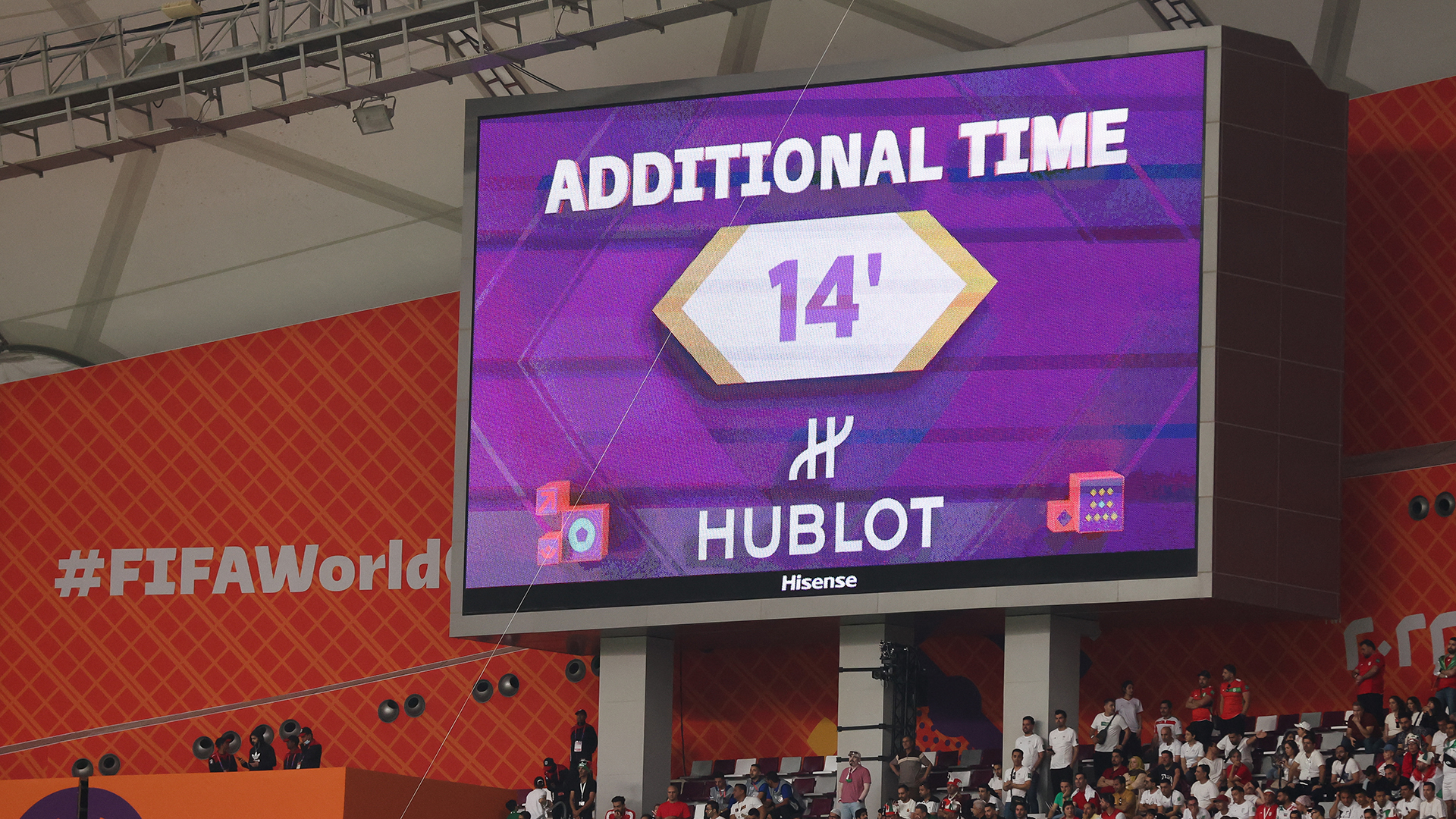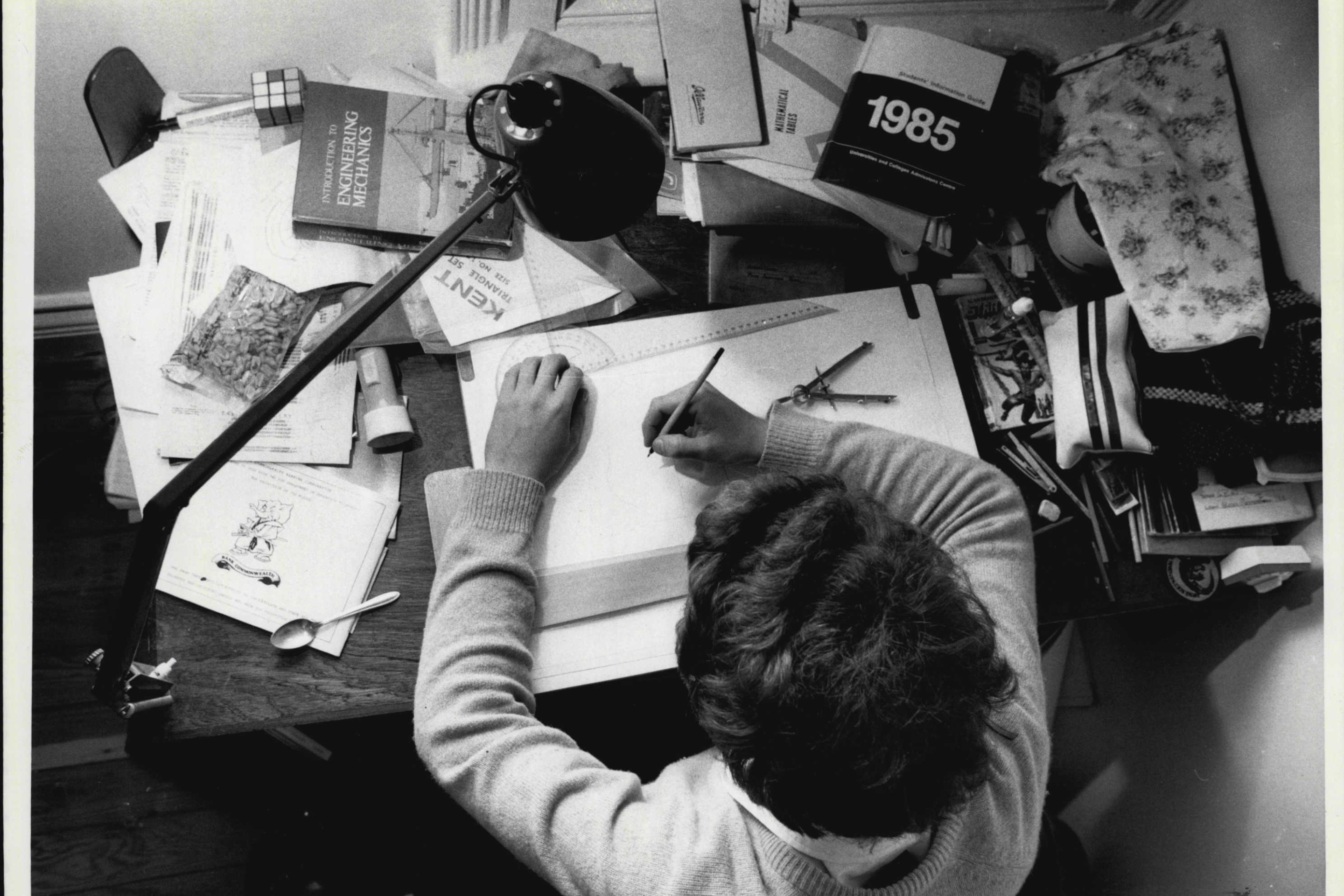Through the first three days of the 2022 World Cup, there have been eight official matches played in Qatar. There has also been an unseen ninth match, one that is both reasonable and completely unforeseen. In fact, it has been more than one match: 128 extra minutes have come in the form of stoppage time, a number higher at this World Cup than at any previous tournament that I can remember.
Stoppage time is something of a necessary evil in soccer. By virtue of its running clock, soccer has always seen variable amounts of extra minutes played at the end of each half to account for the amount of time the ball is out of play. Stoppage time then bridges that gap and increases the amount of action in each game, but at a cost. Really, two costs: The first is that the stoppage time allocation is decided solely by the referees on the pitch and therefore prone to errors or guesstimation, and the second is that it gives the ending of each soccer game a bit of a nebulous conclusion as everyone keeps looking to the referee for the final whistle.
These are drawbacks that soccer fans have lived with since it became a rule in the late 19th century. The drawbacks are simply part of the game now, and most fans can roughly estimate how long of stoppage time will be added, given the action on the field. Well, up until now: Thanks to a philosophical change from FIFA, referees at this World Cup have had free rein to be a lot more extensive when adding stoppage time, and it's led to some uncharacteristically long matches.
The change has led to the five longest periods of one-half stoppage time in the history of World Cup in the first eight matches, as compiled by Opta (Argentina-Saudi Arabia saw 14 minutes of stoppage in the second half after the tweet below was sent out, filling out the top five):
The tricky thing about the mountains of stoppage time so far in the tournament is that, by and large, this is the "correct" way to do stoppage time. It's right there in the name: the additional minutes are meant to cover for all stoppages of play, and it should be variable and lengthy, given how much time is taken up during a half, between injuries, free kicks, corners, substitutions, time-wasting, and, of course, VAR. On paper, what's happening at the World Cup should be the standard, if the rules are applied to the letter of the law.
In practice, though, it's a jarring shift from how soccer matches usually work. One of the biggest strengths of the sport is its pretty strict timetable: 45 minutes for each half, a 15-minute halftime, and then somewhere between three and six minutes of stoppage time across both halves. It's a tried-and-true formula, one that has been upended in Qatar.
This would be fine, if the additional stoppage time had been put to good use by teams so far, but instead, it has generally been a lengthy period of uninspired and tired soccer. Take England-Iran as the most egregious example of this. England was already up 2–0 by the first-half stoppage time, which extended to the 15th minute thanks to Iranian goalkeeper Alireza Beyranvand going down for an extended period after colliding with teammate Majid Hosseini. While Raheem Sterling scored in the first minute of stoppage time, nothing really happened in the remaining 13. The second half was more of the same, though at least there was a goal late into that stoppage when Mehdi Taremi scored a penalty in the 103rd minute.
Other than those two stoppage-time goals in the longest match of the tournament, there has only been one other goal in the additional minutes: the Netherlands' Davy Klaassen scored his team's second in the 99th minute against Senegal. None of those three goals affected the final result, which begs the question: What is the point?
FIFA's reasoning for the more accurate stoppage time is that it gives fans more action and entertainment, but through eight games, there has not been much action at all as games stretched closer and closer to two hours of runtime. There has to be a happy middle ground between having way too little stoppage time and this much, but FIFA is not known for subtle tweaks. (See: the offside rule, or the implementation of VAR, or the new handball rule.) Instead, the World Cup has seen matches get to a point where they begin to drag on as teams run out the overblown clock, especially in lopsided contests. Eventually, fans will adjust, as they always do, but it's just one more way that this World Cup has felt different in all the wrong and off-putting ways.





